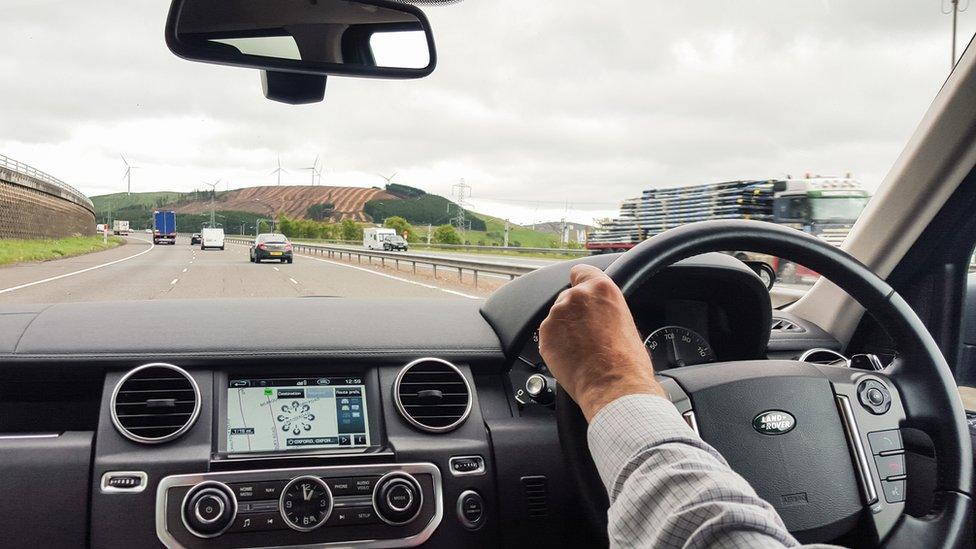Self-driving car could end traffic light need, says firm involved in trial
- Published
- comments
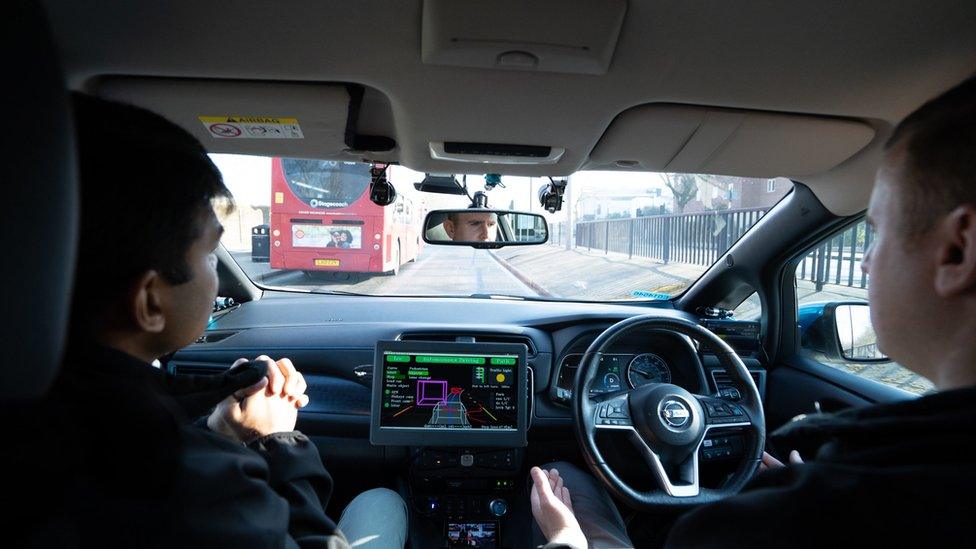
The self-driving cars have completed hundreds of laps around a 2.7-mile (4.3km) route in Woolwich featuring busy A-roads
Traffic lights could become obsolete in 20 years, an engineer involved in a self-driving cars trial has said.
Thomas Tompkin of Smart Mobility Living Lab (SMLL) said "a seismic shift in the way roads are laid out" is possible.
It follows a trial where two self-driving electric cars were tested in Woolwich, south-east London.
Transport minister Jesse Norman said it had helped answer "practical questions" about integrating self-driving vehicles into cities.
The government has invested £7m in the project, Mr Norman confirmed.
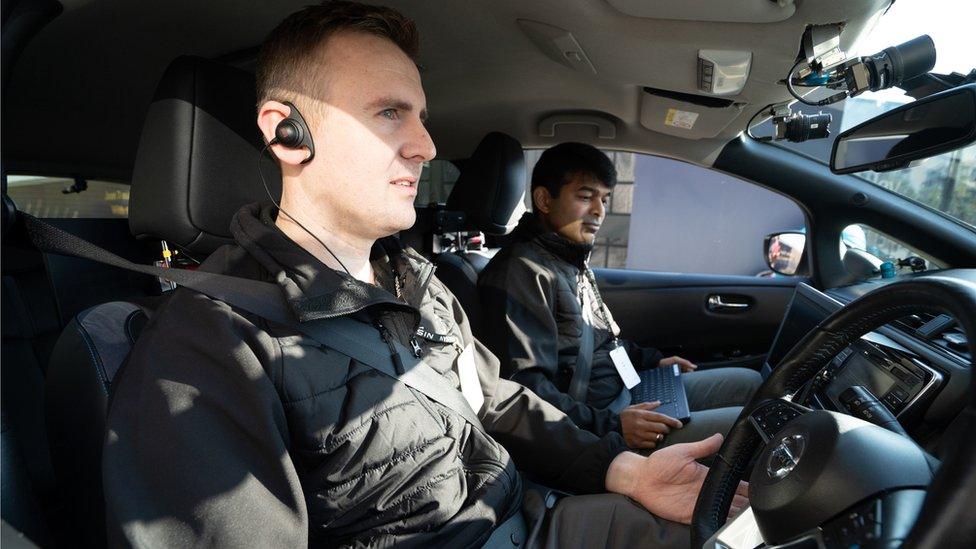
The cars could make traffic lights obsolete in 20 years, Thomas Tompkin of Smart Mobility Living Lab said
The two cars, built by Japanese manufacturer Nissan, have completed hundreds of laps around a 2.7-mile (4.3km) route featuring busy A-roads in south-east London during the past two years.
SMLL was responsible for installing about 270 cameras along the route, which relayed information to the cars about potential issues ahead, such as buses stopped in the left lane.
The trial was part of a ServCity project, thought to be the country's first trial of driverless technology involving the use of infrastructure on the roadside as well as the vehicles' own systems.
ServCity is a £10.7m consortium project involving Nissan, Hitachi, Connected Places Catapult, the University of Nottingham, TRL (formerly Transport Research Laboratory) and SBD Automotive.
Robert Bateman, who manages ServCity for Nissan, said there had been significant differences in London's trials compared with those in the US and Japan.
"With London there's more pedestrian interactions and crossings," he said.
"In Japan, everybody follows the rules. Not so in the UK.
"Quite frankly, if you can get it right here you can then deliver an autonomous vehicle anywhere in the world."
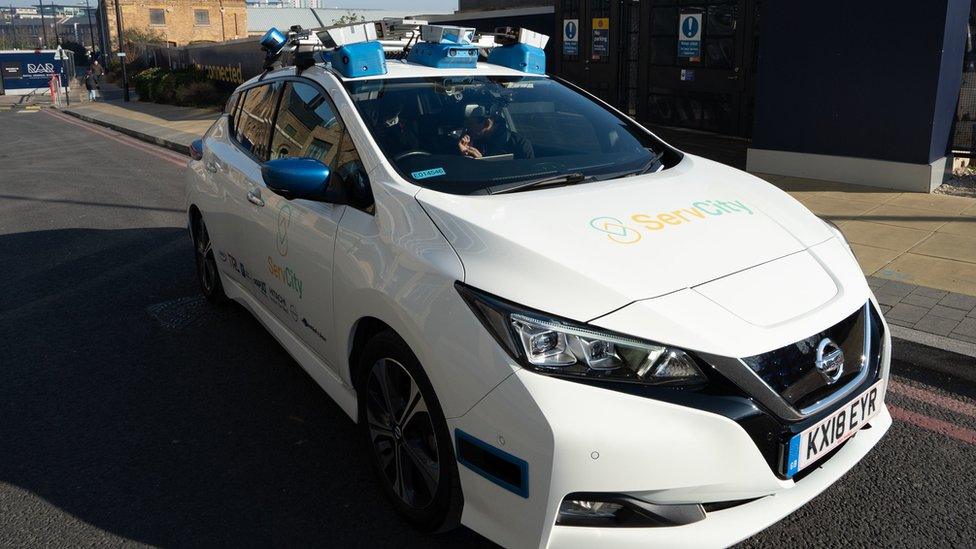
Transport minister Jesse Norman says the trial has helped answer "practical questions" about integrating self-driving vehicles into cities
Mr Tompkin, head of network, infrastructure and operations at SMLL, suggested traffic lights could be removed on roads within 20 or 30 years due to the technology.
"Obviously, there's a lot of work to be done before that ever takes place," he said. "But that's where you can start to see a seismic shift in the way our roads are laid out."
ServCity's cars have a driver behind the wheel who can take control when needed.
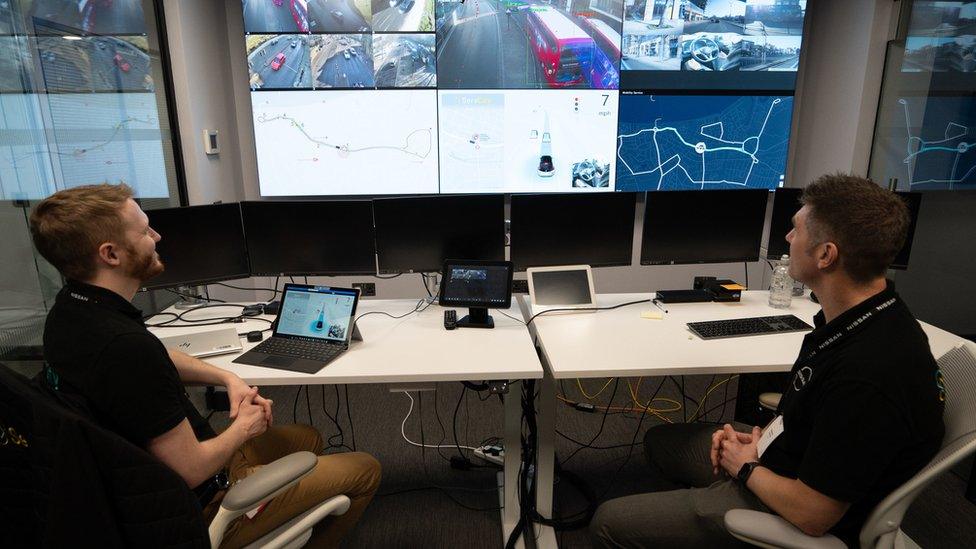
The cars have covered more than 1,600 miles (2,500km) during testing, with no accidents, according to project leaders
A driver intervened at least two times during media demonstrations, firstly to avoid a possible crash with a bus and also to miss a chunk of road surface dislodged from a pothole.
The cars have covered more than 1,600 miles (2,500km) during testing, with no accidents, according to project leaders.

Follow BBC London on Facebook, external, Twitter , externaland Instagram, external. Send your story ideas to hellobbclondon@bbc.co.uk, external
- Published2 February 2023
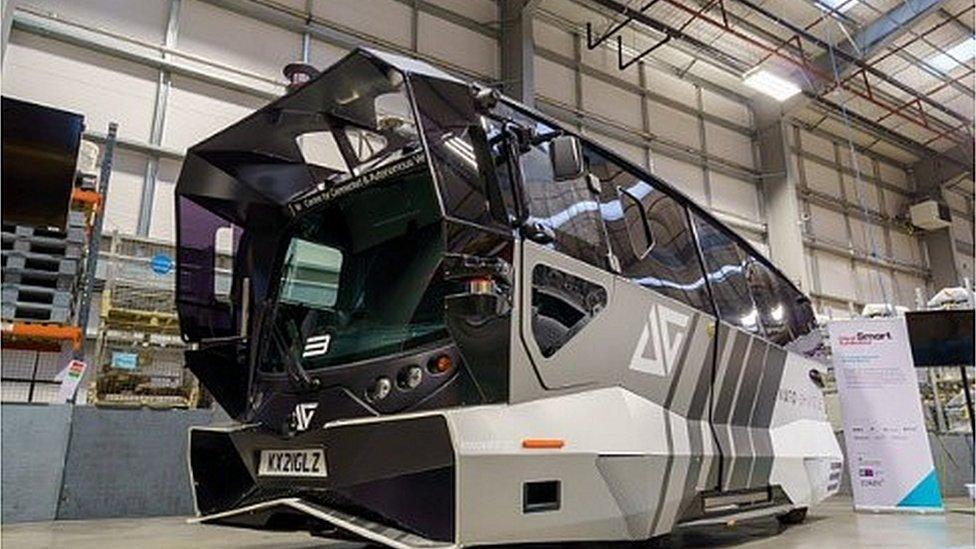
- Published28 April 2021
